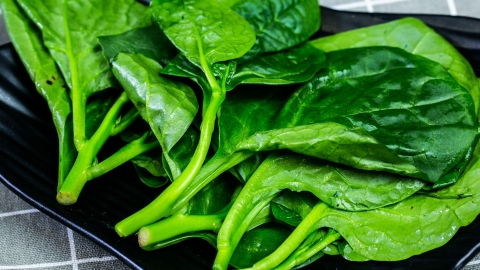Can people with tonsillitis eat Malabar spinach?
Generally speaking, people with tonsillitis can eat Malabar spinach (Basella alba). Specific details are as follows:

When suffering from tonsillitis, patients usually experience symptoms such as sore throat and difficulty swallowing. Malabar spinach is rich in various nutrients including vitamin C, iron, and calcium, which can help enhance immunity and promote wound healing. If the patient is not allergic to Malabar spinach and it is prepared in a light manner, such as stir-frying or making soup, then moderate consumption is acceptable and beneficial for recovery.
Although Malabar spinach is beneficial for patients with tonsillitis, it should still be consumed in moderation. Malabar spinach contains dietary fiber, and excessive consumption may lead to indigestion or bloating. Additionally, if the patient is in the acute stage of the disease, with明显 redness, swelling, and pus formation in the tonsils, accompanied by severe sore throat, eating Malabar spinach is not recommended. Some individuals may be allergic to Malabar spinach, and in such cases, consumption should also be avoided.
In conclusion, Malabar spinach can generally be consumed during tonsillitis. However, it should be noted that dietary adjustments are only a part of the supportive treatment. If the condition becomes severe, timely medical attention is recommended.




